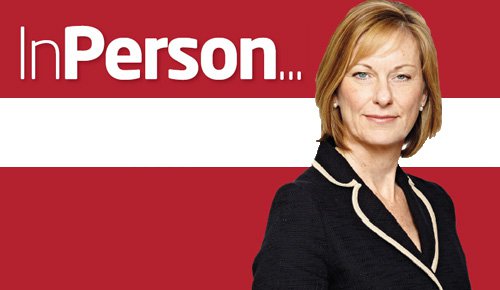We hate people who add to our problems – so don’t be one of them, says CSP chief executive Karen Middleton.

Towards the end of 2014, I was involved in two CSP-led working dinners. On the days after these evening events, members and non-members in high-profile, influential jobs discussed the strategic direction for the profession and informed our Physiotherapy Works programme.
Some were senior allied health professional leaders in the NHS or higher education. Others were in the private sector in a range of roles, including elite sport. All were highly successful individuals in their fields who were making a real difference. They were still registered with the Health and Care Professions Council and many were CSP members too.
Despite their diverse roles, I tried to work out what they had in common. My conclusion was that they had put themselves forward as being the solution rather than being associated with a problem.
Nurturing talent
Even when they are students, we can all spot these individuals – they go the extra mile; take on additional roles; they’re a little bit more courageous or they have some extra astuteness.
Personally, I know they can also be a little bit scary as they challenge some of our accepted wisdom and nudge us out of our comfort zones!
But these people are our future and we need to nurture their talent, not shut it down and knock the confidence out of them.
The strategic leaders had all had mentors, coaches and peers who had believed in them. But they had also worked out for themselves early on that to be associated with, or be seen as, the problem gets you nowhere.
To moan and blame eventually means you will, at best, be ignored and, at worst, marginalised.
Being the solution or part of the solution means you will at least be listened to and, often, people will return to you to hear more.
We all like people with solutions to our problems but we hate people who add to them.
The strategic influencers talked about how often physiotherapists are not viewed as being in the ‘solution game’. This is such a paradox when you consider that the very essence of our clinical work is to find solutions. Why is it that we don’t always translate that clinical experience into other aspects of our working lives?
Being part of the solution is important when we are trying to exert our influence, raise our visibility and get our contribution valued, commissioned and bought. Those in the private sector have always had to do this because they have always been ‘customer-focused’. first and foremost. They simply cannot afford to be anything other than the solution to other people’s problems.
Those of us working in the public sector are learning that the same imperative applies to us now. It is not just a matter of presentation, but also of substance.
So, when speaking to people who are buying your services, forget the message about needing more physiotherapists. Rather, focus on how you can solve their problems, whether these are increasing demand in A&E, the cost of long lengths of stay, the cost of care packages in social care or the cost of primary care.
This is the approach I took when I had a recent one-to-one meeting with the chief executive of NHS England, Simon Stevens. I told him about our falls prevention economic mode and, in my next column, I want to share more about that experience with you to illustrate how it’s done ... fl
Author
Karen Middleton
Number of subscribers: 0
